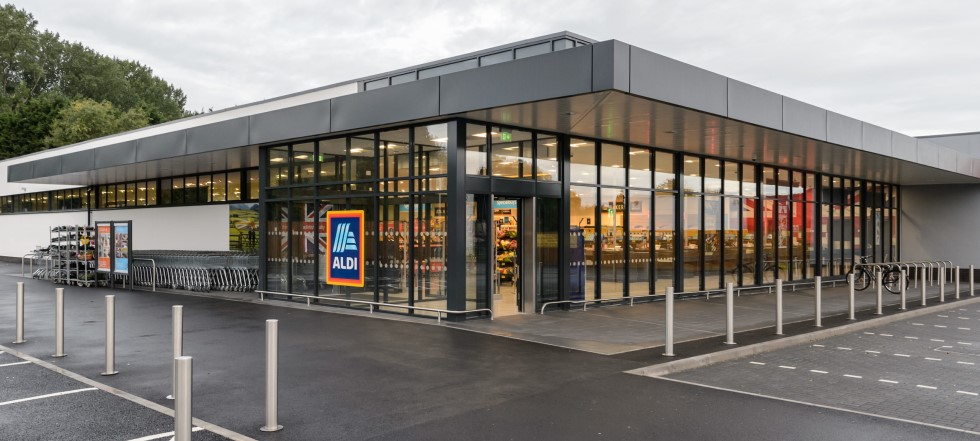UK supermarket Aldi has said the way Britain shops for groceries has been transformed by cost-of-living concerns, as it pledges to opening another 500 stores across the country to make lower prices accessible for everyone.
The company, which – according to Kantar data – has attracted around one million more customers to its stores over the past year, said rising living costs have created a shift in attitudes, adding that a “new generation of savvy shoppers have turned their back on traditional, full price supermarkets.”
In the 12 months to December 2022, annual sales increased by almost £2 billion to £15.5 billion (£13.6 billion in 2021) as consumers hit by inflation prioritised value like never before. This was a new record in Aldi’s 33 year history.
The supermarket, which operates more than 1,000 UK stores, said it planned to open in 18 new locations before the end of the year. It recently committed to opening up to 500 more stores across the UK. Its expansion will create 6,000 new jobs in total this year, adding to the 6,000 permanent roles created last year.
Latest data shows sales growing at 17.1% – the fastest of any supermarket – with market share at 10.1%. The business said operating profit last year increased to £178.7 million (£60.2 million in 2021), representing a margin of 1.2%, noting the year-on-year increase was due to an exceptional prior year when its profit margin fell to an 11-year low of 0.4% following significant investment in Covid-related measures.
Competition in the UK grocery market
Aldi, which opened its first store in 1990, overtook Morrisons last year to become Britain’s fourth biggest supermarket, whilst Kantar data shows that two thirds of British households now shop with the store. According to IGD figures, Aldi is also the second most popular UK supermarket among households for doing a full weekly shop, which shows how consumers are increasingly turning to the discounter for all their grocery needs.
The recent price comparison by consumer group Which? confirmed Aldi as the UK’s cheapest grocer for the 15th consecutive month, showing the traditional Big 4 are on average 15% more expensive. Aldi said it had already invested over £350 million in price reductions so far this year across 650 items, with further reductions expected in the run up to Christmas as inflation continues to fall back. Just this month, it lowered prices on 55 products across fruit and veg – around one third of the range.
It said its rate of investment in the UK would increase in the next two-year period (2023-2024) to more than £1.4 billion, including work to expand its distribution and store network as well as improving existing stores and technology infrastructure to support growth.
A new generation of “savvy shoppers”
Giles Hurley, CEO for Aldi UK and Ireland, said: “Although inflation is easing, households are still under real pressure from higher living costs. As a result, Britain is shopping very differently to how it did 18 months ago – fewer trips, more own label products, and switching supermarkets in search of better value.
“What we’re seeing is a new generation of savvy shoppers who’ve turned their back on traditional, full-price supermarkets in favour of transparent, low prices, which is what we’re famous for. That’s why we’re still welcoming more and more customers through our doors – people who come to us for our low prices but stay for the award-winning quality of our exclusive brands.
“Shoppers know they’ll always get more for their money at Aldi. That’s a promise we’ve kept for more than 30 years.”
He added: “There are still communities across the UK that don’t have easy access to quality, low price groceries and that’s something we want to address through our expansion, with plans to increase our investment even further over the next two years to £1.4 billion in new and improved stores and distribution centres, creating thousands of jobs for our colleagues and more opportunities for our 5,000 British suppliers.”









